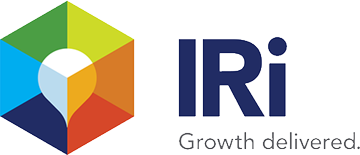Sales planning platform simplifies forecasting at IRI.
Delivering growth for customers isn’t just sales jargon for data and analytics powerhouse IRI—it’s embedded in company DNA. This approach is working. IRI’s growing list of customers includes 95 percent of the Fortune 100 companies in retail, health, beauty, and CPG. But success can be complicated. IRI’s growth revealed the limitations of existing planning processes—especially those impacting sales. Spreadsheets simply couldn’t provide the insights and planning.
After finding success with Workday Adaptive Planning for finance, IRI decided to implement Workday Adaptive Planning for sales to bring the same powerful, scalable, and easy-to-use analytics and insights to its sales planning process.
With Workday Adaptive Planning for sales . . . we have sales data across the team so we can easily aggregate it and measure our progress against it.
VP Finance
Challenges.
Cumbersome, error-prone spreadsheet.Salespeople were frustrated using spreadsheets to find the information they needed to support strategic decision-making and forecasting.
Siloed planning.Siloed planning existed between client sales teams and the product teams, making it difficult to reconcile the differing views.
- Outdated data.By the time commercial finance pulled data into spreadsheets, formulated an analysis in response to a query, and circulated reports to leadership, the information was often outdated.
Results.
Self-service reporting.Salespeople can easily access dashboards to help monitor their pipeline and forecasts without having to rely on finance.
Collaborative planning.Finance and sales teams can now set sales goals together, integrate goals into company plans, and improve reporting and forecasting.
- Real-time data.People throughout the organization are able to track performance against goals and plans, adjust to marketplace changes quickly, and provide timely status reports to leadership.

